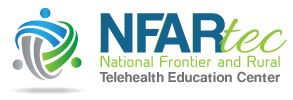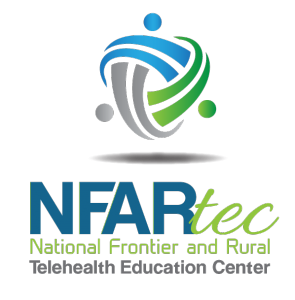 Preview of What’s Coming
Preview of What’s Coming
TRAININGS
NAADAC Annual Conference, October 9, 2016, Minneapolis, MN – Invitation to present
Recovery Support Technologies: Pioneering New Models of Substance Abuse Recovery Services & Implementing Technology-Assisted Care.
NAADAC Annual Conference, October 11, 2016, Minneapolis, MN – Invitation to present
Tools You Can Use to Enhance Your Practice Today!
Minnesota Association of Resources for Recovery and Chemical Health, October 26, 2016, St. Paul, MN:
Technology-based Supervision: Extending the Reach of Clinical Supervisors.
State of Delaware Division of Substance Abuse and Mental Health, October 27, 2016, Newark, DE – Invitation to present
New Ethical Dilemmas in the Digital Age: Telehealth Technologies and Treatment..
State of Delaware Division of Substance Abuse and Mental Health, November 17, 2016, Newark, DE – Invitation to present
New Ethical Dilemmas in the Digital Age: Telehealth Technologies and Treatment.
State of Delaware Division of Substance Abuse and Mental Health, November 18, 2016, Newark, DE – Invitation to present
Recovery Support Technologies: Pioneering New Models of Substance Abuse Recovery Services.
State of Delaware Division of Substance Abuse and Mental Health, December 15, 2016, Newark, DE – Invitation to present
Technology Assisted Care for Substance Use Disorders
EXIBITING
Maryland Rural Health Association 2016 Rural Health Conference: Creating a Culture of Health in Rural Maryland, October 5-7, 2016, Solomons, MD
NAADAC’s 2016 Annual Conference: Embracing Today, Empowering Tomorrow, October 7-11, 2016, Minneapolis, MN
MEETINGS AND PRESENTATIONS
TELEHEALTH TUESDAY MEDIA SERIES EVENTS
(second Tuesday of every month at 11:00am Pacific Time)
October 11, 2016 –Technology-based Interventions: Extending the Reach of Organizations and Practitioners
The use of online and mobile technologies is pervasive across age, race/ethnicity, and geography. More and more, consumers are relying on Internet- and smartphone-based tools to seek and track health information. Even if practitioners struggle with technologies or doubt the utility of technology-based interventions to provide quality care, it is important they understand the ability of technology to reach large numbers of people and that using technology to provide health services offers the possibility of better care, reduced stigma, and broader reach. There are evidence-based practices that have demonstrated positive outcomes in randomized control studies, as well as numerous efficacy studies on providing prevention, intervention, treatment, and recovery services for individuals with behavioral health problems and those at risk for HIV/AIDs, Hepatitis A, B, and C, and STDs. This podcast is designed to introduce participants to technology-based interventions (Interactive Voice Response; Videoconferencing, Apps, and Texting) that have been tested with individuals with behavioral health disorders and to increase awareness of factors that impact adoption by practitioners and organizations. Finally, the podcast provides two suggestions for practitioners about no costs technology-based interventions that can help practitioners and patients.
Presenter: Nancy A. Roget, MS, MFT, LADC ~ PI/Project Director NFAR ATTC
November 8, 2016 – Technology-based Clinical Supervision: Guidelines for Licensing and Certification Boards
Clinical supervision decreases staff turnover, improves morale, and leads to better client outcomes by improving delivery of evidence-based behavioral health care. However, in many places – particularly rural and frontier areas – workforce and resource shortages limit the availability of Clinical Supervisors. Using technology may be a way to expand the reach of qualified Clinical Supervisors. The National Frontier and Rural Addiction Technology Transfer Center (NFAR ATTC) has developed eight guidelines to help licensing and certification boards adopt technology-based clinical supervision (TBCS). Webinar participants will be introduced to the Guidelines, hear how the Guidelines can be used by states and national organizations, and learn how NFAR ATTC can provide assistance with implementing the Guidelines into state/national regulations to expand the use of TBCS.
Presenters: Tobie Barton, MA, Project Manager NFAR ATTC
NFAR ATTC Licensing and Certification Board Workgroup Members (to be determined)
December 13, 2016 –Contingency Management: Implementing Evidence-Based Incentives through Technologic Innovation
Contingency management (CM) is an effective evidence-based practice that stimulates healthy motivation in the brain’s reward center. CM does this by leveraging the power of incentives to reward patients for staying sober and participating in treatment. However, it has been limited in its adoption because of many implementation burdens. In this webinar, we will present the scientific evidence behind CM, case studies and templates of how to implement it in practice. We will also provide an overview of DynamiCare Rewardsâ„¢, a new smartphone app that automates CM best practices via home drug testing, automated attendance tracking, instant reward distribution, and predictive analytics.
Presenters: David R Gastfriend, MD DFASAM, Chief Architect, CONTINUUM – The ASAM Criteria Decision Engineâ„¢, Scientific Advisor, Treatment Research Institute, Chief Medical Officer, DynamiCare Health, Eric Gastfriend, MBA, CEO, DynamiCare Health
NFAR-ATTC Advisory Board meetings to be conducted individually via conference call November-December 2016
OTHER PROJECTS
NFAR-ATTC is willing to offer regional trainings for areas that are interested in implementing telehealth technologies in their area. Please contact Terra Hamblin at thamblin@casat.org or call 775.784.6265 for more information.
 Most Significant Accomplishment
Most Significant Accomplishment


 New Products
New Products Preview of What’s Coming
Preview of What’s Coming